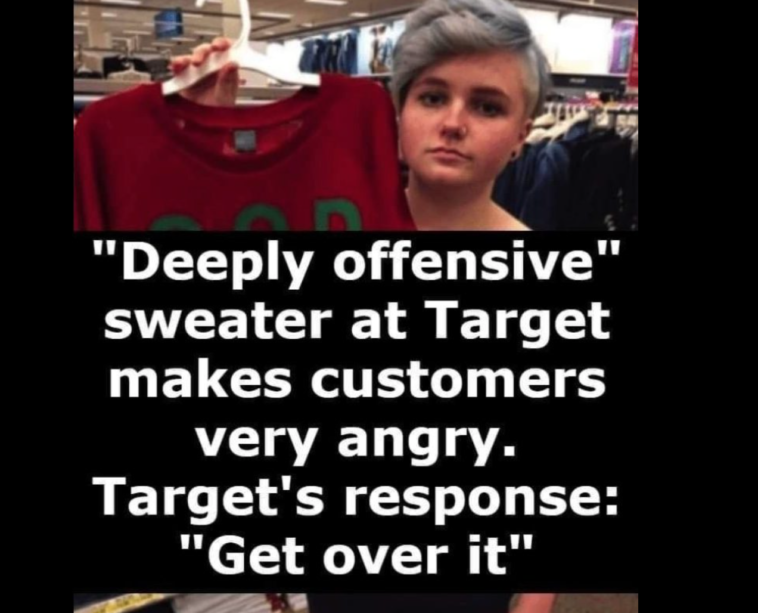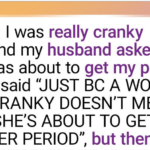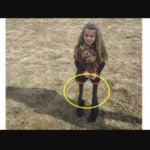Despite having PR and marketing teams with healthy budgets, some of America’s biggest brands have been caught up in serious blunders. From tone-deaf campaigns to products that truly insult and offend consumers, there is no shortage of instances when brands totally missed the mark and released items that manage to roundly draw criticism from the public. Mega brands like Target, Walmart, and others have all been the focus of intense backlash after they managed to alienate folks and make the collective soul of this nation do a giant facepalm.
You would think that these brands would have contingencies in place to stop them from royally screwing up, but oftentimes, things get missed in the shuffle and somehow make it onto the market. The ire that these brands have stirred up can often result in items being pulled from the shelves but also investigations mounted by outside entities as consequential as the US Justice Department. If you’ve ever wondered what brands have screwed up the most, you’ve come to the right place. This entire list is triggering so consider yourself warned that the items on it are very offensive and ill-advised.
Calvin Klein’s Wretched ‘Kiddie’ Jeans Campaign
Calvin Klein became the subject of a Justice Department investigation after they released an ad campaign that featured young and underage models in an uncomfortable “casting couch” situation. A camera is set up in what appears to be a basement void of natural light. A voice coaches the various models in a way that will make your skin crawl. Calvin Klein ultimately had to take out a full-page New York Times ad to declare that it wasn’t child pornography. Yikes!
Heineken’s ‘Lighter Is Better’
In 2018, Heineken started using the tagline “sometimes, lighter is better.” While that might seem inoffensive on its face, a 30-second ad featuring the tagline totally offended folks. In the ad, a bartender is shown sliding a beer past three black people to a lighter-skinned woman. That’s very problematic! Many were outraged by the seemingly racist commercial but Chance the Rapper led the charge, calling the ad “terribly racist.” Following the backlash, Heineken removed the ad.
Gucci Flirts With Blackface

In 2019, Gucci pulled a wool balaclava turtleneck sweater after outrage that the garment resembled blackface. Scrutiny over the luxury brand’s misstep grew so intense that it was forced to issue an apology. “Gucci deeply apologizes for the offense caused by the wool balaclava jumper,” the company said at the time. “We consider diversity to be a fundamental value to be fully upheld, respected, and at the forefront of every decision we make.”
Prada’s Turn at Blackface
Gucci was not the only brand that flirted with blackface in recent years. Prada also had to withdraw merchandise following backlash over offensive imagery. For its Pradamalia line, Prada decorated its Manhattan storefront with controversial imagery causing many to wonder how the products ever made it to production in the first place. The brand apologized and promised to step up diversity efforts following the blunder.
Audi’s Car as Woman
When you try and think of a brand that might release something offensive, a car manufacturer is probably not high on your list. However, Audi really stepped in it after releasing an ad in China that finds a couple enjoying their marriage ceremony only to be interrupted by the groom’s mother who “kicks the tires” of her soon-to-be daughter-in-law. She inspects the woman’s face by pinching her lips, pulling her ears, and examining her teeth and tongue. She nods in approval following the appraisal and the ad reads, “an important decision must be made carefully.”
Naturally, the public was outraged over the ad that seemed to compare marrying your wife to buying a new car. Not cute!
H&M’s ‘Coolest Monkey in the Jungle’
H&M has appointed a diversity manager after dealing with the fallout from using a black child to advertise a hoodie with the slogan “coolest monkey in the jungle” https://t.co/QK2tetYYML pic.twitter.com/TxmJ7tnrKD
— CNN (@CNN) January 18, 2018
In early 2018, H&M really messed up the marketing of a hoodie that was emblazoned with the words, “Coolest Monkey in the Jungle.” As a hoodie for kids, this hoodie seems pretty benign but when they chose a Black model for the job, things got pretty offensive. Historically, Black people have been dehumanized by comparisons to animals and folks saw the image from H&M as just another example of that racist behavior.
“Our position is simple and unequivocal — we have got this wrong and we are deeply sorry,” H&M said in a press release.
Target and the ‘OCD’ Sweater
In 2022, Target was slammed after releasing a sweater that said “OCD” and instead of Obsessive-Compulsive Disorder, the brand thought it was a good idea to substitute “Obsessed Christmas Disorder.” It’s a case of one of the biggest American brands missing the mark by trivializing mental illness.
Snapchat’s Misguided Rihanna Ad
Snapchat pulled this tone deaf ad that made light of Chris Brown’s assault on Rihanna pic.twitter.com/rD9ZBQ0HXt
— NowThis (@nowthisnews) March 16, 2018
Also in 2018, Snapchat released a “would you rather” style post that asked consumers if they would rather slap Rihanna or punch Chris Brown. The post was referencing the 2009 incident when Brown violently assaulted his then-girlfriend Rihanna. How did this even happen? The blunder cost the company big, with Snapchat losing $800 million of its share price. The company apologized and called the incident an “oversight.” We don’t know who needs to hear this but domestic violence is not a game and is anything but trivial.
Dolce & Gabbana & Chopsticks
Yet another luxury fashion brand to face allegations of racism and ethnic stereotyping, Dulce and Gabbana released an ad showing a Chinese model attempting and failing to eat a variety of Italian dishes with chopsticks. People knocked the brand, which is no stranger to controversy, for suggesting that Chinese individuals lacked refinement and an understanding of other cultures.
Ultimately, the ad forced D&G to cancel a Shanghai fashion show that likely cost the brand millions in revenue.
Victoria’s Secret Anti Fat and Anti Trans Stance
Ed Razek, chief marketing officer at Victoria’s Secret parent company, L Brands, said during an interview with Vogue that the retailer has no plans to add larger sizes to its lingerie range. He defended the company’s position, saying “We market to who we sell to, and we don’t market to the whole world.”
As if alienating a large swath of Earth’s population was not enough, Razek also stated that there’s no place for trans models in a Victoria’s Secret show. When asked why the marketing officer said “Because the show is a fantasy. It’s a 42-minute entertainment special.” Naturally, outrage followed.
Razek walked back those statements and Victoria’s Secret hired its first plus-size model in 2019. He stepped down shortly after the hire.
Two years after making the offensive remarks, the New York Times published a piece stating that Razek “presided over an entrenched culture of misogyny, bullying, and harassment.”
Kendall Jenner’s Infamous Pepsi Ad
Following heated protests over police brutality and the killing of unarmed Black people, Pepsi got the bright idea to turn the movement into a commercial. Yes, this giant brand thought it was a good idea to commercialize the Black Lives Matter movement. In the ad, Kendall Jenner embodies the face of the resistance and takes on a sort of white savior role that angered most folks who saw it.
In response, Pepsi pulled the ad and released an apology both for the ad and to Kendall Jenner who had read the script and decided to go along with the project.
Nivea’s White Purity

If you thought that an advertisement for deodorant couldn’t be offensive, think again. German skincare giant, Nivea, had to backtrack after releasing an ad in 2017 that carried the tagline “white is purity.” The ad implies that whiteness is “pure” while people of color are not “clean and bright.” The ad was talking, we assume, about having lighter underarms as opposed to darker underarms, but this does not take into account the fact that only white folks have white underarms.
“There have been concerns risen about ethnic discrimination due to a post about Nivea Deodorant Invisible for Black & White on our Nivea Middle East Facebook page,” the company said following the controversy. “We are deeply sorry to anyone who may take offense to this specific post. After realizing that the post is misleading, it was immediately withdrawn.”
It’s the first bad ad from this brand but it’s not the last one on this list. Keep reading to find out what else Nivea screwed up.
Playstation Goes White in Holland

Who knew that an ad for a portable Playstation could go so wrong. In Holland in 2006, SONY purchased a billboard for an ad that said “Playstation Portable, White Is Coming.” The “white” here is a reference to a new ceramic white portable Playstation. We’re not sure how the ad executives at the company managed to bungle this so hard. The ad shows a white woman aggressively grabbing a Black person by the face.
SONY did not apologize despite the ad going viral in the US for all the wrong reasons. Instead, they defended the ad saying it was not offensive to their target audience in Holland. Eventually, SONY caved and removed the billboard.
Burger King’s Seven-Incher

Burger King drew criticism from consumers after a very, very suggestive ad for a seven-inch sandwich went live in 2009 for the Singapore market. Ask yourself this question: “When was the last time I saw a man portrayed like this in an ad?” The answer is never. This overtly sexist ad takes the marketing adage “sex sells” to a whole new level. The model here had no idea her image would be photoshopped in this way. She called for a boycott of the brand.
RELATED: 25 Canceled Halloween Costumes That Are Beyond Offensive
Intel’s Runners Ad

If you looked at this ad and immediately cringed, congratulations you have eyes. We’re not sure how the marketing team put this ad together without catching the clear slaveholder vibes of it. The ad finds a smug-looking white man standing tall with his arms crossed. He’s flanked by Black runners who seemingly are “bowing down” to him.
“Unfortunately, our execution did not deliver our intended message and in fact proved to be insensitive and insulting,” Intel VP Nancy Bhagat wrote shortly after the ad was pulled.


